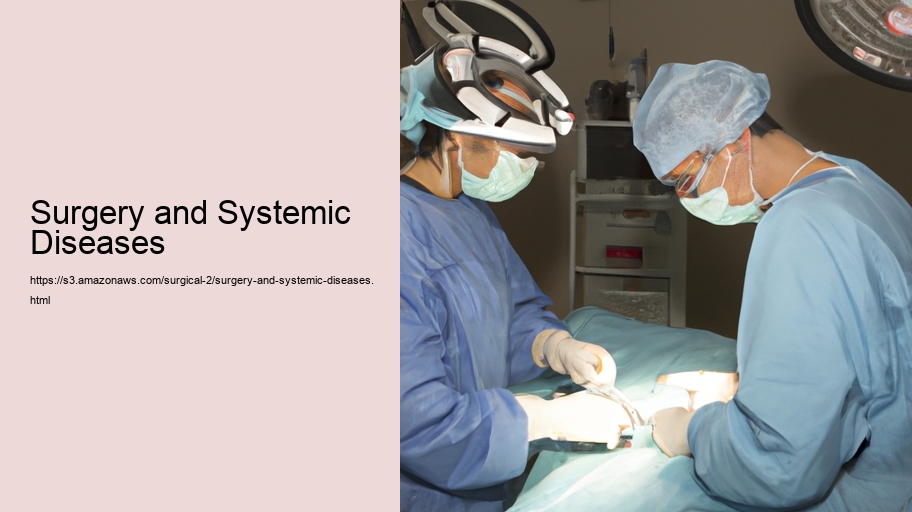Surgery and Systemic Diseases: An Inextricable Link
When we think of surgery, the image that typically springs to mind is the precise intervention on a localized anatomical structure, aiming to repair, remove, or replace it to restore the body's function. However, surgery is not an isolated event in the human body; it is a complex process that interacts with the entire organism, which includes its systemic diseases. These diseases are conditions that affect multiple organs or the whole body, and they can significantly influence the outcomes of surgical procedures.
Systemic diseases range from diabetes and hypertension to autoimmune disorders such as lupus, and from chronic kidney disease to heart conditions. The intricate relationship between surgery and systemic diseases is a critical consideration for both surgeons and patients, and it warrants a comprehensive understanding.
Firstly, systemic diseases can impact a patient's candidacy for surgery. Certain conditions, such as uncontrolled diabetes or severe heart disease, can increase the risk of complications both during and after the procedure. Surgeons must carefully evaluate these risks and weigh them against the potential benefits of the surgery. This often requires a multidisciplinary approach, involving specialists who can help optimize the patient's health prior to the operation.
Preoperative preparation is another area where systemic diseases play a crucial role. For instance, patients with diabetes need to manage their blood sugar levels to reduce the risk of infection and promote healing. Similarly, individuals with cardiovascular diseases might require adjustments in their medication regimen to mitigate the risk of thrombotic events or cardiac complications during surgery.
The surgical procedure itself can be affected by systemic diseases. Anesthetic considerations are paramount, as certain drugs or techniques may be contraindicated or require modification for patients with specific conditions. The stress of surgery can exacerbate underlying diseases, leading to acute events such as diabetic ketoacidosis or hypertensive crises. Thus, intraoperative monitoring and management must be tailored to the patient's systemic health status.
Postoperative care is equally influenced by systemic diseases. The recovery process can be prolonged or complicated by the patient's pre-existing conditions. For example, patients with compromised immune systems, such as those with rheumatoid arthritis on immunosuppressive therapy, are at a higher risk of postoperative infections. Rehabilitation protocols may need to be customized to accommodate the limitations imposed by systemic diseases.
Furthermore, systemic diseases may not only complicate the perioperative course but can also be the driving reason behind the need for surgery. Vascular diseases, often systemic in nature, can lead to the need for amputations or bypass surgeries. Cancers, which can affect multiple organ systems, may require complex surgical interventions as part of a broader treatment strategy.
The postoperative period also requires vigilant management of systemic conditions to ensure optimal outcomes. The stress of surgery can unmask or exacerbate systemic issues, necessitating close monitoring and intervention. The goal is to achieve not only the immediate surgical success but also to maintain or improve the overall systemic health of the patient.
In conclusion, the interplay between surgery and systemic diseases is profound and multifaceted. A successful surgical outcome is not measured solely by the technical success of the procedure but also by how well the systemic diseases are managed throughout the perioperative period. This highlights the importance of a holistic approach to surgical care, one that considers the patient as a whole rather than focusing solely on the operative site. The collaboration between surgeons, anesthesiologists, and medical specialists is essential in navigating the complexities posed by systemic diseases to ensure the safest and most effective surgical outcomes for patients.
